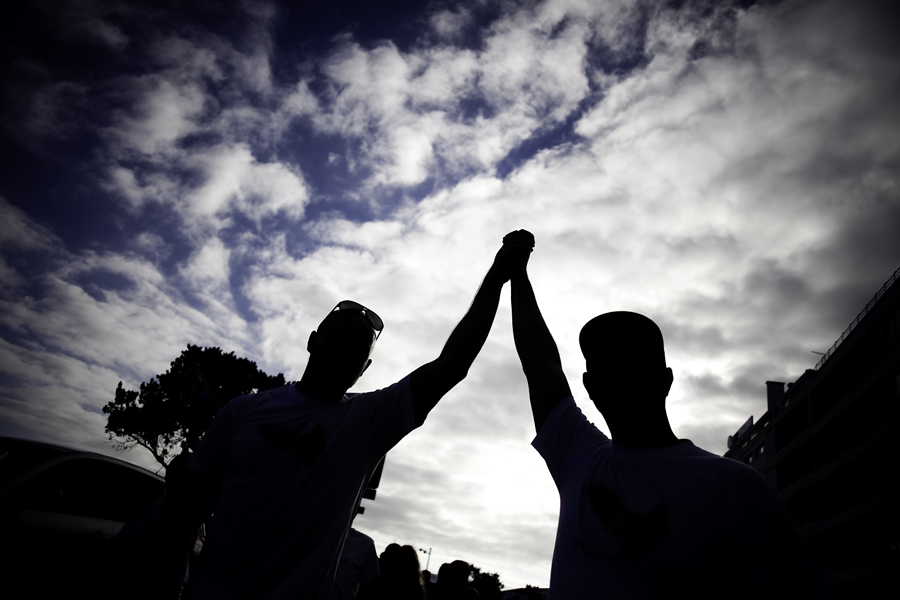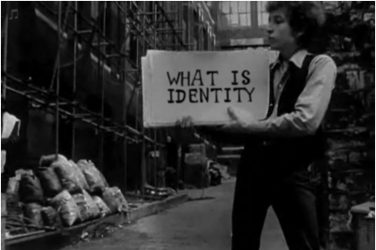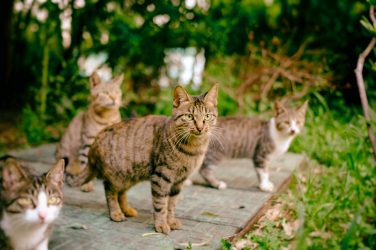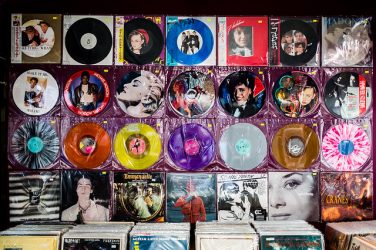Can a feminist believe in marriage? How does a lesbian know she’s gay? How does it feel to experience discrimination? At the Living Library project, you can borrow a person instead of a book – and you might end up questioning your own prejudices.
You’ve probably heard the saying, “Don’t judge a book by its cover.” In every European country, there are minority groups which face discrimination because people do just that: they judge people on how they look, rather than turning the pages and finding out the story which lies beyond the cover. The Living Library project encourages “readers” to borrow people rather than books – people who have faced discrimination – and to ask them how the world looks from their perspective. Erhan Vural spoke to participants in Turkey, Slovenia and Austria.
“When did you realise? Does your family know? What kind of a life do you have? Are you out at school? Do you face any discrimination?” are some of the questions that Nesli Uras was asked when she was the lesbian “book” in a living library project in Turkey. As a book, she was borrowed by many different people who had stereotypes or prejudices towards lesbians or who were just curious about homosexuality. She was not always on the answering side: she also asked “How do you know that you are heterosexual?” as she was asked how she knew she was gay.
Yaşayan Kütüphane, Živa Knjižnica, or Die Lebende Bücherei are only the different names of a common purpose. They are the examples of Living Library in Turkey, Slovenia and Austria. (More recently, the official English name of the project has become Human Library, but it is still called Living Library in many other languages.) The idea was first developed in Denmark by a group of young people from the organisation “Stop The Violence” during a youth festival. Today, in many countries, Living Library projects are spreading the original spirit at a local or national level. Technically, all the processes and the rules which apply to borrowing a book are also valid here. You go to the library, check the catalogue and ask about the availability of the book. If it is available, then you have a specific amount of time to read the book and to put it back on the shelf. But you should not forget that you’re not allowed to damage it. In all these respects, living library is a project in which prejudices are confronted in an atmosphere where readers ‘borrow’ a book according to their stereotypes and prejudices. But it’s not always just about the negative side. Marlies Unterweger, who organises the Living Library in Austria, argues that “someone who thinks that Africa is a beautiful place, and just wants to know more about it, can do it by not just googling it but by talking to a person who already lived there.”
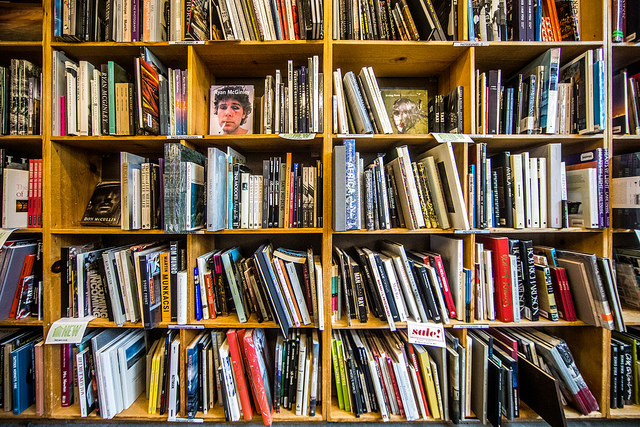
Here the books can breathe and they can also cry or be happy, because they are humans who are generally victims of social exclusion or discrimination such as disabled people, LGBTs, feminists, asylum seekers or Muslims. Therefore, the Living Library provides opportunity to gain information first hand. “I don’t think that everyone is willing to listen to everyone, but as long as they are willing to sit down and have a civilised conversation, that is already a good situation,” says Jasna Magic, a project manager at the Association Informational Centre Legebitra in Slovenia. Some books are specific to a particular society, like ‘the erased’ of Slovenia. They are the people who were the citizens of former Yugoslavia and after the declaration of independence in 1991 they lost their legal status and now “they literally cannot do anything and they do not exist,” states Jasna. However, it is also not always a very easy process to implement such a huge project. For instance, some human rights volunteers from AEGEE-Ankara wanted to repeat their Living Library in 2010 after the success of the first one, but the Middle East Technical University did not grant them permission. Prejudice seems to be at work here, too: the same university refused to allow students to form an LGBT student society.

A poster for the Living Library in Copenhagen, where the project originates.
The very idea of the Living Library is itself a big challenge to society’s set ideas and norms. As Jasna says, “there is no one who is prejudice free.” Not only the readers, but also the books gain something that they have never tasted before. “I borrowed the feminist book, and I thought I did not have any prejudice towards her. I asked for her opinion about marriage, but then I realised that in fact I do have prejudices about her,” says Sezin Kabasakal, who was also once an organiser and at the same time a reader. She explains: “I had the typical idea that a feminist woman can or should not get married, however the book told me that, if anyone in this world is going to get married, it ought to be a feminist woman to change her partner as much as possible, and more importantly, to raise a child with no gender roles in his or her mind.” Marlies clarifies the aim of the project, saying, “we want people to talk with each other rather than about each other.” Hidden prejudices and assumptions, like Sezin’s assumption about feminists, are often best revealed through such direct conversations.
The future of the Living Library is a big concern – and not all organisers see it in the same way. On the one hand, Nesli wants the project to happen on a more regular basis, and she wishes to see a book who is a parent of an LGBT member. For her, more projects should be conducted at universities. And on the other hand, Jasna would like to have a sustainable way to bring it into the sphere of primary and secondary education. The earlier children are introduced to ‘diversity’, the most diversified perspectives they can build for their future lives.
Does the idea reach out to people with the strongest prejudices? There’s no guarantee for this – but at least Living Libraries can provide a very personal space in which people can have “the opportunity to talk to someone to get the information by first hand,” as Marlies says. As a reader, Sezin also says that “the idea was truly a brand new perception for me.” But the aim is not to spread one particular view of political correctness: “the Living Library is not trying to convince anyone, neither does it convert people or moralise,” says Jasna.
The Living Library is not trying to convince anyone, neither does it convert people.
All in all, the Living Library is only an opportunity for people who would like to explore something new to them. What makes it unique is that it lets people speak directly to those who share the same society with all of us. They are people we see in the streets, in pubs or at school. Marlies says, “a homosexual person is not just homosexual; he or she is also a farmer, a sister or a singer.” As the reading session begins, the conversation between a reader and a book is relaxed and open, providing a medium of dialogue and communication. The aim is not to change people’s minds; rather, it is to ask questions, listen to people, and laugh with them or to create question marks in their minds after the reading session.

A poster for the Human Library in Copenhagen, where the project originates.
For more information about the Living Library in general, go to humanlibrary.org – or visit the individual Slovenian, Austrian and Turkish websites. If you’re wondering about organising a Living Library event in your own country, read the organiser’s guide.
Cover Photo: Bloco (Flickr); Licence: CC BY-NC-ND 2.0


